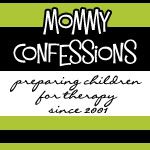
The second time I went to Kenya, I had the unforgettable experience of escorting my septuagenarian parents there. The trip was a gift for their fiftieth wedding anniversary, which they celebrated in 1993. Mike and I first accompanied them to Paris and then we all went on a series of safaris in East Africa.
My sister, Gayle, lived just outside of Nairobi at the time and one of the highlights was our excursion into a Masai village that she had arranged. She’d done business there, buying tribal artifacts for the new African exhibit at Brookfield Zoo, her on-again, off-again employer. Gayle’s relationship with the warriors and the women and her ability to speak fluent Swahili (the tribe's second language) enabled us a full-service welcome into the circular village of mud and dung huts behind thorny, protective walls.
As the handsome, tall, red-clad warriors stood guard outside, the women grabbed their babies, lined up and broke into song. Recognizing our mother as the “elder” of our female clan, they pulled her into their line and encouraged her to clap with their rhythm. At one point, she was even handed handed a baby.
The Masai are a tall, semi-nomadic tribe and their signature color is red. The women wear a lot of beaded jewelry around their necks and wrists and in their pierced, elongated ears. Their identities within the tribe are often articulated by their jewelry.
Women do the beadwork and make beads from raw materials such as shells, ivory, bones, twigs and seeds. Of course, glass beads from Europe are now used just as often. I purchased the piece (photo at right) in this village and it’s made from shells, twigs, glass beads and cow or goat hide.
The red, four-strand Dream Life Designs piece, (photo below/left), was inspired by the Masai and my trips to their villages. It consists of bright red Venetian White Heart trade beads, along with copper and a colorful array of 4mm Swarovski crystals.
 Venetian White Hearts originated in Venice, Italy during the late 1800s to early 1900s, and were found in Africa. During this period, the Venetians dominated the African trade bead market and produced the majority of the beads sold or traded.
Venetian White Hearts originated in Venice, Italy during the late 1800s to early 1900s, and were found in Africa. During this period, the Venetians dominated the African trade bead market and produced the majority of the beads sold or traded.
These beads are exceptional in that they’ve lasted over 100 years and have traveled through at least three continents. Venetian trade beads are said to appreciate 10% in value each year.
This necklace, “Masai Maiden” is available for $95, which includes tax and shipping. Visit the Dream Life Designs website today. http://www.sandypointproshop.com. Or, you can call our toll free phone number, 888-588-3233, for more information. Thank you and . . .
Kwaheri!
































